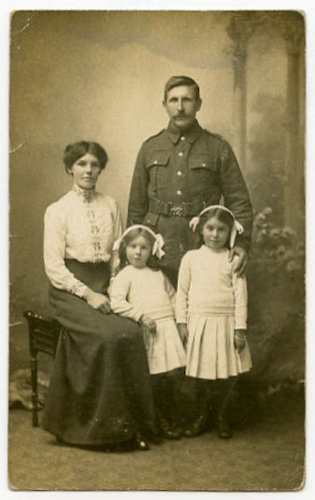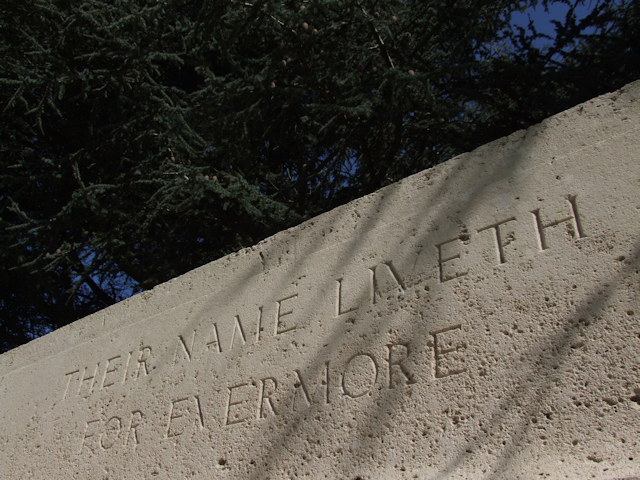Name
Fred Weston
Conflict
First World War
Date of Death / Age
Rank, Service Number & Service Details
Awards: Service Medals/Honour Awards
Cemetery/Memorial: Name/Reference/Country
Headstone Inscription
Not Researched
UK & Other Memorials
NA
Biography
Fred’s parents were Charles and Jane Weston (née Roberts) and he was born on April 10th 1883. He was the youngest of eleven children, two of whom had died by the 1911 census. They lived at Wellbury Cottages and Charles was the gamekeeper to the Delme Radcliffes at the Priory and Highdown.
Fred initially went to Pirton School, but later went to the Hitchin British School because he claimed “they couldn't teach him any more!” He walked daily from Wellbury to the school – in excess of 5 miles each way!
He left school at twelve and followed in his father’s footsteps by becoming a junior gamekeeper on an estate in Wantage. It seems that he stayed there until his father retired, probably around 1907 and then Fred returned to Pirton to fill the vacated post. He probably moved into one of the Wellbury Cottages, living next door to his father and certainly the 1911 census shows that was the case then.
His future wife, Rose, was a native of Wendover, where her father was a keeper on the Rothschild estate at Halton. Rose was a children's nurse working for a family in Hounslow, who were either related to, or friends of, the Pollards at Highdown. While they were staying at Highdown, Fred and Rose met, fell in love and, in due course, planned to marry in Halton during the spring of 1908. On April 7th, shortly before the wedding date, Fred confronted poachers at Punch Cross Hill and was attacked. Much of what follows was witnessed by Albert Stapleton from Holwell.
Newspaper articles report that Fred had heard that men were hare coursing and he went to speak to them; the men turned out to be Arthur Hoye and John Crawley, both from Pirton. After a verbal confrontation he was attacked by Hoye and then by Crawley who hit him from behind with a stick. During the fight that followed Fred was kicked, bitten, threatened with a knife and received several more blows with the stick both to the legs, arms and head. Another man, James Smith, also witnessed some of the events and was threatened. He described Fred as “covered in blood”. William Throssell, who was passing with a horse and trap, was asked to go to Hitchin for the police and a doctor (William Grellett). Fred somehow managed to get himself home and when the doctor came he described Fred; “He was in a collapsed and very faint condition” and “had lost a lot of blood”.
Fred had taken a terrible beating. The ‘stick’ would probably be more accurately described as a cosh; it was about a foot long, wrapped in a hide for stiffness, had a lead weighted end and a wrist strap. We know this because it was recovered and was passed to Hitchin Museum by Derek Wheeler.
Fred was laid up in bed for five days and it was eight weeks before he could return to gamekeeping - not surprisingly the wedding was postponed until August 1908 while he recovered.
The men were tried separately; John Crawley was indicted for unlawfully and maliciously inflicting grievous bodily harm and with 17 previous convictions was sentenced to 18 months hard labour. We have no information on the sentence passed on Hoye.
By the outbreak of war, Fred and Rose had two young children: Hilda Mary and Lucy born in 1909 and 1910 respectively – they are shown with Fred and Rose in the photograph. Fred is recorded in the Parish Magazine of September 1915 as enlisting during 1915 and serving in the 2nd Bedfordshire Regiment. He would have been about thirty-two years old when he enlisted. He went for training at Ampthill Camp and later, as part of further training, was stationed at Languard Fort near Felixstowe. Although not yet in battle he was wounded, hit in the head by shrapnel during a Zeppelin raid on Harwich.
The North Herts Mail of July 1st 1915 reported that he was about to go to the Front (probably rather prematurely). Another edition around this time reported him as wounded, but in fact that was another man of a similar name. The Herts Pictorial of August 1st 1958 adds a little more information under a report headed ‘Golden Wedding For A Gamekeeper’. It records that he fought at Mons, which normally means the first major battle fought by the British in 1914, but that cannot have been the case for Fred because he would not have gone to the Front until 1916. He is also recorded as fighting at the Somme (1916 and / or 1918) and at Ypres (1917). He was gassed while on the Somme and spent time in a French hospital and at some point was posted as missing. The Hertfordshire Express of May 5th 1917 reported him as wounded, but he was ‘lucky’ as ‘a piece of shell entering at his chest emerged from his back without breaking a bone or doing any vital injury.’ It is not clear whether this was a service-ending injury. He did suffer with an upset stomach for the rest of his life, which he attributed to the earlier gassing.
During his war service his family was evicted from their home by Delme Radcliffe, who apparently told them that he could not keep a job vacant for someone who might never return - it seems surprising, given the patriotic fervour of the day, that this could happen. As a result, Rose and the two small children moved to Wendover, where Hilda went to school and Lucy stayed with an aunt in Aylesbury.
At the end of the war the family returned to the area around Pirton to live in a tiny farm cottage in Higham Gobion. Fred worked as a farm bailiff for a farmer called Ben Brown. The two girls walked daily to Hexton School and another daughter, Joan, was born – she is still alive, very well, age 94 and living in Hitchin. By the mid 1920s Fred was employed by a tea merchant, called Alec Purvis, who lived in Chiltern Road, Hitchin, becoming his chauffeur. Apparently he had to prove he could drive by picking up a new car from Sanders in Walsworth Road, driving it through Hitchin on market day and returning it to Chiltern Road safely without damaging the car. He obviously passed the test as he went on to work for the Purvis family for many years.
Initially Fred, Rose and the girls lived in another tiny cottage in Florence Street, Hitchin, where Hilda met Frank Wheeler (Derek Wheeler’s father) who lived in Nightingale Road.
Fred drove a Fiat, a Daimler and a Bullnose Morris and travelled with the family temporarily to Clacton, where they had a summer home, and to Tunbridge Wells, where they later moved.
Hilda and Frank married in Tunbridge Wells in 1930, but ultimately came back to live in Nightingale Road in Hitchin.
From 1930 to 1938 or thereabouts, Fred and Rose lived in a flat near Golders Green station, while Fred was still employed by Mr Purvis, but the call of Hertfordshire was too great and they returned to rent 18 Bunyan Road, Hitchin and they never moved from there. Fred took a job building dustcarts at Shelvoke and Drewry in Letchworth, and during the Second World War he worked for George W. King, who had an engineering works opposite Hitchin Station. In about 1950, he took his last job and became a gardener at the Victaulic Company in Wilbury Way, Hitchin, and ultimately retired from there when he was well into his seventies. He died about 1968 when in his mid-80s, but Rose lived to be 95.
Derek has also provided the interesting family anecdotes that appear below:
Apparently “Fred always voted Conservative before the Great War, but after his treatment by Delme-Radcliffe, he vowed never to vote for the ruling classes again!”
“He claimed that Earl Haig should be tried for war crimes, since he sent so many good men unnecessarily to their deaths.” (JW Note: While this may have been a 'popular' view i the 1960s, this perhaps should be balanced by the fact that most modern historians have a more measured view of Eral Haig's achievements and I recommend that you read a good book on the subject such as 'Douglas Haig: From the Somme to Victory' by Gary Sheffield).
“He cycled with his brother Jack to Hendon circa 1910 to watch Claude Grahame-White flying.” - he was an English pioneer aviator “and during the Daily Mail sponsored London to Manchester air race of 1910 “He cycled to Sharpenhoe Clappers, where he saw either Claude Grahame-White or Louis Paulhan taking part.” – The latter was a French pioneer aviator
Additional Information
After meeting Derek Wheeler to gather the information, within a few weeks, by a strange coincidence, Jonty Wild was also contacted by the great niece of Arthur Hoye, one of the above defendants. Text from the book ‘The Pride of Pirton’ by Jonty Wild, Tony French & Chris Ryan used with author's permission
Acknowledgments
Text from the book ‘The Pride of Pirton’ by Jonty Wild, Tony French & Chris Ryan used with author's permission and more detailed biography by Jonty Wild, Derek Wheeler MBW



